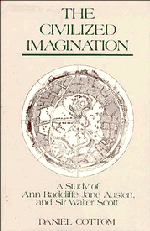6 - Reading the word of nature
Published online by Cambridge University Press: 06 August 2010
Summary
In recent years there have been critics who have questioned C. S. Lewis's famous judgment that “the great abstract nouns of the classical English moralists are unblushingly and uncompromisingly used” in Jane Austen's novels, in which he said that everything was “hard, clear, definable; by some modern standards, even naively so.” Already in 1953 Andrew H. Wright was analyzing at some length the complexities in Austen's narrative point of view, but especially in the last twenty years the major criticism of Austen has shown what seems to be a growing consensus that her language is by no means simple or unblushingly easy to grasp. Frank W. Bradbrook, for instance, notes that the question of speech in these novels “is not so simple as it might appear,” because “it does not provide an absolute standard of either intelligence or integrity.” J. F. Burrows argues that “Jane Austen uses words with the freedom of a novelist rather than the necessary rigidity of a lexicographer,” supporting this argument by analyzing her usage of such terms as “sense,” “reason,” and “fancy.” E. Rubenstein writes, “If the eighteenth-century moralists gave Austen their vocabulary, they do not appear to have given her the certainty that Lewis implies they themselves enjoyed.” K. C. Phillips points out how such words as “sense” and “sensibility” are “overburdened with meaning” in her work.
- Type
- Chapter
- Information
- The Civilized ImaginationA Study of Ann Radcliffe, Jane Austen and Sir Walter Scott, pp. 106 - 124Publisher: Cambridge University PressPrint publication year: 1985

